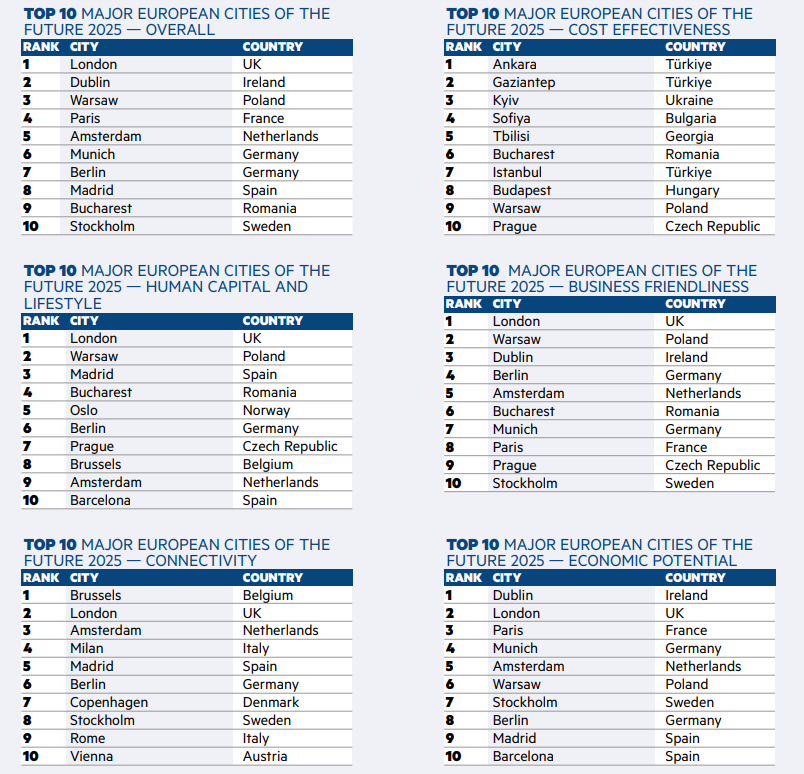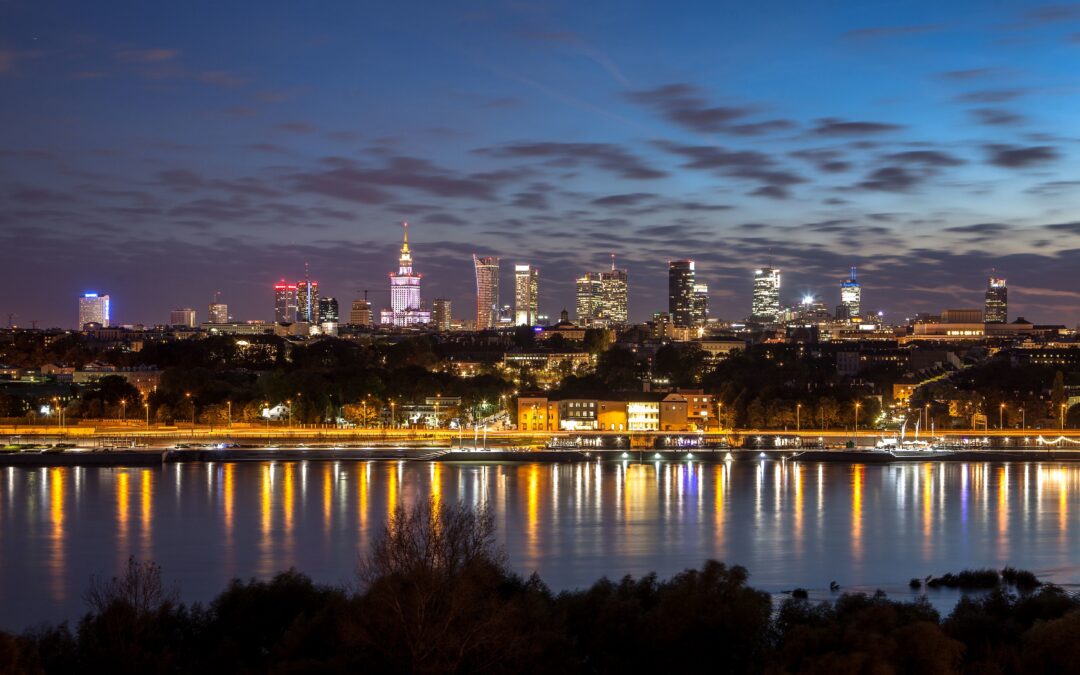Keep our news free from ads and paywalls by making a donation to support our work!

Notes from Poland is run by a small editorial team and is published by an independent, non-profit foundation that is funded through donations from our readers. We cannot do what we do without your support.
Warsaw has placed third in a ranking of the “European Cities of the Future” with the best investment potential, compiled by fDi Intelligence, a division of the Financial Times. Meanwhile, Kraków and Wrocław also placed in the top three for cities of their size.
fDi Intelligence’s report assessed 521 European cities and regions based on their investment potential across five categories: economic potential, human capital and lifestyle, cost effectiveness, connectivity, and business friendliness.
In the top “major cities” categories, Warsaw moved from fourth in last year’s ranking to third this time, behind London in first and Dublin in second.

European Cities and Regions of the Future 2025, fDi Intelligence
fDi Intelligence noted that the Polish capital has attracted more jobs related to foreign direct investment (FDI) than any other European city over the past five years, including from multinationals such as Google and Visa.
In particular, the city has become “a major hub for software development, with…more than $1bn in FDI in this industry since 2020”, they added. This year, Warsaw has already seen the announcement of further investments by Microsoft and Google.
Warsaw ranked second in the categories of business friendliness and human capital and lifestyle, behind only London in both cases. It also ranked sixth for economic potential and ninth for cost effectiveness.
“Considering that just two years ago Warsaw was not [ranked] in this category [of human capital and lifestyle], the position of the second-best city in Europe is a great success,” wrote Warsaw city hall, noting that it has managed to “attract talent from all over the country and from abroad”.
The city’s mayor, Rafał Trzaskowski, celebrated Warsaw’s overall position in the ranking as “confirmation that our efforts to build a city friendly to residents and investors are bringing results”.
Warsaw, the capital of Poland, is the country’s largest city, with a population of approximately 1.8 million. Nearly completely destroyed during World War Two, it was rebuilt in the postwar years and has since developed into a major economic, political and cultural centre.
Warsaw ranks 3rd among Europe's large cities in the Financial Times "European Cities & Regions of the Future" ranking! 🏆
✨ 2nd for Business Friendliness
✨ 2nd for Human Capital & Lifestyle
A top destination for talent and investment! 🌍
Find out more 👇https://t.co/Vd4KDxQiWU… pic.twitter.com/lgBeDozoj5— Go2Warsaw (@Go2Warsaw) February 15, 2025
Meanwhile, Poland’s second-largest city, Kraków, came third in fDi Intelligence’s ranking of second-tier “large cities”, behind Frankfurt am Main and Hamburg, both in Germany. It climbed by one position compared to the previous edition of the ranking
Kraków also placed first in two of the subcategories – human capital and lifestyle and business friendliness – with fDi Intelligence noting that the city has become a key hub for shared services centres and that western European investors accounted for 83% of Kraków’s inward FDI in 2024.
Meanwhile, Poland’s third-largest city, Wrocław, topped the ranking among third-tier “mid-sized cities”, with fDi Intelligence calling it “the Polish Silicon Valley” due to numerous foreign investments in tech.
Other Polish cities that made the ranking include Gliwice, which placed second in the business friendliness category among “small cities”, and Legnica and Błonie, which both ranked tenth among “microcities” in the categories of cost effectiveness and business friendliness respectively.
Microsoft will invest $700m in Poland to expand its existing data centre, develop AI, strengthen cybersecurity and boost competitiveness.
"This represents an enormous vote of confidence in the Polish people," says @Microsoft president @BradSmi https://t.co/Z3ngeTZ5d2
— Notes from Poland 🇵🇱 (@notesfrompoland) February 17, 2025

Notes from Poland is run by a small editorial team and published by an independent, non-profit foundation that is funded through donations from our readers. We cannot do what we do without your support.
Main image credit: Maria Teneva / Unsplash

Alicja Ptak is deputy editor-in-chief of Notes from Poland and a multimedia journalist. She has written for Clean Energy Wire and The Times, and she hosts her own podcast, The Warsaw Wire, on Poland’s economy and energy sector. She previously worked for Reuters.



















